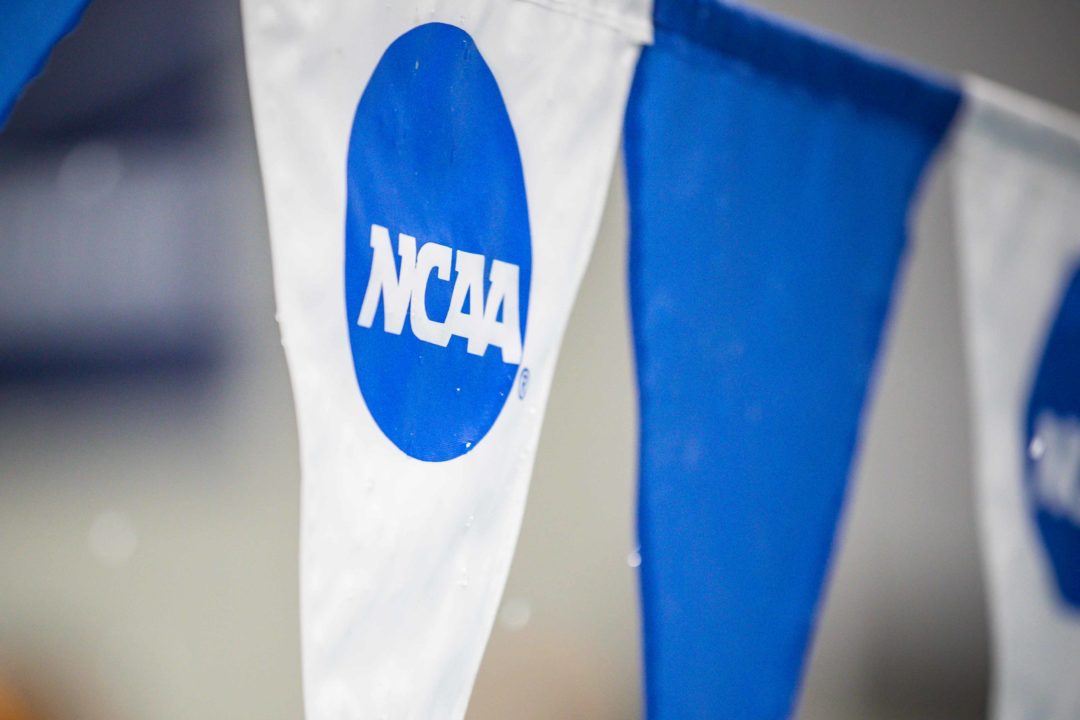The NCAA Board of Governors issued a statement confirming that it remains committed to modernizing rules on athlete name, image and likeness rights.
Name-image-likeness – or NIL – policies have become a hot-button issue within the NCAA rulebook. Current NCAA amateurism rules don’t allow student-athletes to earn a profit from their own names, images, and likenesses as college athletes. Many have criticized the rules as unfair and out-of-date, with the NCAA earning large profits on the backs of student-athletes who are not allowed a share of the money.
Last year, the NCAA made a key announcement: that it would be “modernizing” its NIL rules to allow athletes to earn compensation based on their names, images, and likenesses. However, in January of this year, that plan hit a snag as the NCAA Division I Council announced that it would delay a vote on modernizing NIL rules. The NCAA cited several factors, including correspondence with the U.S. Department of Justice, as reasons for the delay.
While the vote remains delayed, the NCAA Board of Governors released a statement this week affirming that changes to the NIL policies are still on the horizon.
“The NCAA and its members remain committed to providing a path for student-athletes to benefit from name, image and likeness opportunities,” the statement says. “As we have previously noted, we recognize the importance of taking swift, appropriate action to modernize our rules. We also must collaborate with Congress to create a legal and legislative framework at the federal level to support name, image and likeness within the context of higher education. With several state laws taking effect this summer, we will continue efforts to adopt expanded name, image and likeness opportunities as soon as advisable.”
A few other notable NCAA headlines this week:
NCAA Supports Gonzalez-Cleaver Bill
The NCAA publicly supported a bill introduced to the U.S. House of Representatives last year aimed at granting NIL rights to college athletes. The bill, introduced by Representative Anthony Gonzalez (R-OH) and Representative Emanuel Cleaver (D-MO), is known as the Gonzalez-Cleaver bill.
“We value the bipartisan nature of U.S. Reps. Gonzalez and Cleaver to again collaborate across party lines and sponsor legislation to support student-athletes,” the NCAA said in a statement this week. “Their House bill will strengthen the college athlete experience and support the NCAA and its members to modernize name, image and likeness rules but not pay student-athletes or turn them into employees of their college or university. Moreover, the Gonzalez-Cleaver legislation would create a legal and legislative framework to preserve and enhance the mission of college sports: that students can play the sport they love and earn a degree – often with a full scholarship and no debt – and set themselves up for a lifetime of success. We look forward to continuing to work with both lawmakers, their co-sponsors and other members of Congress on these important measures.”
While the bill would ostensibly help student-athletes, some observers have argued that it will actually hurt student-athletes in several ways. The bill implies that college athletes would not be considered employees under federal law, which could hurt student-athlete attempts to unionize. The bill could also prevent state legislatures from implementing laws that give student-athletes even more rights in those states.
Division III Presidents Council Supports NIL Change
The Division III Presidents Council made an official motion of support this week for changes to NIL policies. The motion affirms the Division III Administrative Committee’s authority to work on legislation that would change NIL policies between now and the next quarterly governance meeting.
According to the NCAA’s release, the Division III legislative proposal currently in the works could allow athletes to use their status as student-athletes to promote their own products or services, and could also allow student-athletes to use college athlete status to endorse “third-party products or services,” as long as schools themselves aren’t actively procuring athletes endorsement deals.

Unfortunately, I think this will be the end of a possible Dean Farris return. At least he’ll be stinking rich with all the sponsorships he’ll be getting
The NCAA remains committed to kicking this can as far down the road as possible before actually doing anything.
Will be very interesting to see how the NIL delay impacts NCAA swimming next year. Could it push Regan Smith, Torri Huske, Andrei Minakov and other potential Olympic stars to give up their eligibility to cash in when they could otherwise do both. Seems like it could have a serious effect at the top.
I’m not much of a betting man, but an upvote says the NCAA doesn’t come out with new rules before 2022. More likely 2025 and taking effect fall 2027.